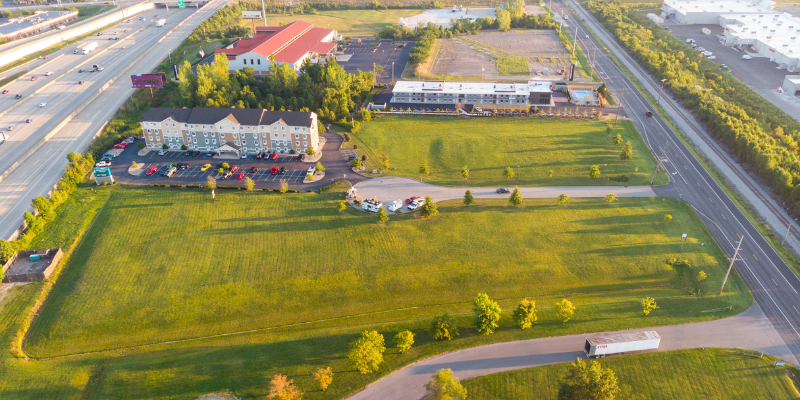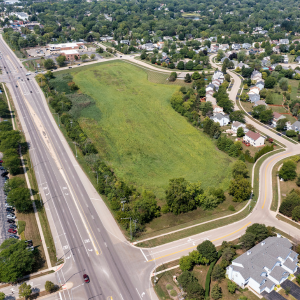
If you’re considering subdividing land in Louisiana, Fast Land Offers can guide you through the state’s zoning rules, land-use regulations, and approval process to ensure a smooth and compliant process.
Understanding Land Subdivision in Louisiana
Property subdivision is an important aspect of planning and making the greatest use of property for developers in Louisiana. It’s hard to do this, and you need to know a lot about the laws and rules in your area. If you know the basics and the rules, it will be easier to secure permissions and work with different departments on subdivisions. The next portions delve into more detail regarding the basics of land subdivision, from broad notions to how to obey Louisiana’s unique rules.
The Basics of Land Subdivision in Louisiana
Land subdivision entails partitioning a larger plot into smaller lots, facilitating individual sale or development prospects. In Louisiana, this process is governed by a regulatory framework designed to facilitate structured development while safeguarding both natural and urban ecosystems. When developing a subdivision, it is crucial to understand the geographical, zoning, and developmental potential of the area in question. Each site possesses distinct potential limitations, sometimes influenced by municipal zoning ordinances and environmental requirements.
A subdivision generally commences with a detailed proposal, referred to as a subdivision plat. This design delineates the proposed subdivision layout, emphasizing the partitioning of the site, the configuration of roads, utilities, and other critical infrastructure components. This document functions as a fundamental guide for development and requires approval from local planning authorities. A thorough review of the plat ensures that each component of the subdivision complies with local land use restrictions.
Creating an efficient lot plan is crucial, considering both the legal and practical dimensions of the plot as well as its market attractiveness. This entails evaluating the accessibility of utilities, infrastructure, and the prospects for future developments on the segregated property parcels. Developers must evaluate if the proposed subdivision aligns with the community’s existing development plans and overarching regional growth strategy. Moreover, engaging with local residents and stakeholders provides crucial insights into community impacts and enhances the efficiency of the subdivision process.
Land subdivision divides a parcel into smaller lots for development or sale. You can also sell your land for cash in Louisiana and nearby states, offering a fast and simple alternative to complex development.
Legal Requirements and Procedures
It is imperative to comprehend the legal prerequisites when considering subdivision in Louisiana. In order to obtain the necessary approval, each proposed subdivision must adhere to specific legal guidelines and procedures. This process typically entails the engagement of multiple departments, such as the planning department and zoning committees, as it navigates through various levels of regulatory compliance.
Developers are required to adhere to Louisiana’s specific planning criteria, conduct environmental impact assessments, and compile comprehensive property surveys before submitting a subdivision application. Various agencies frequently require permits, contingent upon the size and scope of the subdivision. For instance, environmental permits are essential for the preservation of local ecosystems and the implementation of sustainable development practices.
The subdivision plat is typically submitted to the planning department as part of the application process, where it undergoes a comprehensive review to ensure regulatory compliance. This entails an evaluation of the connectivity of infrastructure, the convenience of access, and the recommended lot sizes in relation to the surrounding community. Legal considerations also comprise aspects that are necessary to adhere to state and local standards in the context of public utilities and roadways.
Collaboration with legal professionals who specialize in Louisiana property law is typically necessary to effectively manage these legal obligations. They provide critical insights into the process of navigating and deciphering the complex details of subdivision-specific regulations, ensuring that the final application is comprehensive and meets all necessary criteria. Additionally, developers frequently engage in collaboration with local government officials to address any potential concerns that may arise prior to the planning commission’s evaluation of the application. By demonstrating the subdivision’s alignment with broader community and regional objectives, effective engagement with local authorities can significantly increase the likelihood of approval.
The Role of the Planning Department in Land Subdivision in Louisiana

The planning department in Louisiana is responsible for overseeing the land subdivision process. These departments collaborate closely with developers to ensure compliance with all legal, zoning, and environmental rules, allowing for orderly and sustainable expansion. The agency works with other local entities in each parish and municipality to ensure that proposed subdivisions are in line with community aims and legislation. This dual job of oversight and facilitation emphasises the department’s critical importance. Ahead, we’ll look at how the planning department helps developers and essential planning tactics for successful land subdivisions.
How the Planning Department Assists Developers
The main job of the planning department is to help developers navigate the complicated web of rules and procedures that come with dividing up land. The agency makes sure that any proposed subdivision follows state, parish, and local municipality rules by providing important help and expert advice. This teamwork is very important for speeding up operations, getting rid of bottlenecks, and helping developers avoid making mistakes that cost a lot of money. The department spends a lot of time making sure that developers have all the information they need about zoning rules and environmental limitations. To make plots that are both legal and profitable, you need to know this kind of thing.
The planning department also functions as a go-between for developers and several government agencies. This means setting up meetings and making sure that all the paperwork is in order and follows the law. Developers can get useful information about possible problems that can come up during the approval stages by talking to the planning department early in the subdivision process. Developers can use the department’s resources and knowledge to make their subdivision plans fit the demands of the community while still following the rules.
The department also plays a key role in making public consultations happen. Developers typically have to show their plans for subdivisions to the people who live in the area and address any concerns. They also have to take input into account when making their designs. The planning department helps developers and the community work together by holding these meetings. This builds trust and openness. This gradually establishes a base of cooperation, which is necessary for any development effort to be successful in the long run.
It’s also important that the department keep developers up to date on changes in policy or zoning rules that could affect their plans for subdivisions. The planning department helps developers quickly adjust to changing rules by supplying this kind of information ahead of time. This keeps their projects in compliance. The planning department’s many forms of support help make the subdivision process move more smoothly and efficiently, making sure that long-term development goals and regulatory criteria are met.
Key Planning Strategies for Successful Subdivision in Louisiana
Effective land subdivision in Louisiana requires strategic planning that takes into account regulatory requirements, community involvement, and the potential for future growth. Carrying out a detailed examination of the land’s topography and current infrastructure is a crucial element of this approach. Understanding the lay of the land, combined with thorough environmental due diligence, enables developers to create subdivisions that minimize ecological damage while optimizing land usage.
Collaborating with the planning department from the outset is a highly effective strategy to ensure that the characteristics of proposed subdivisions align with municipal or parish development plans. This forward-thinking approach helps developers spot possible issues with current land use policies and tackle them before the final submission. Consistent interaction with the planning commission guarantees that proposed subdivisions meet legal standards while also benefiting the local community, showcasing the distinct growth goals for each region.
Engaging the community strategically is an essential element in the effective planning of successful subdivisions. Engaging residents and local stakeholders from the beginning can yield essential insights into the unique needs and expectations of the community. This comprehensive approach not only streamlines the approval process but also builds community trust and acceptance for the proposed development. Organizing public forums or speaking at local council meetings is a great method to gather insights and refine strategies to enhance community service.
Incorporating flexibility into the planning process is essential. Developers today need to strategically consider the future of urban expansion and the evolving requirements of municipalities. Creating subdivisions with a focus on flexibility, like incorporating adaptable spaces or scalable infrastructure, ensures that projects stay relevant and beneficial as time goes on. This kind of foresight is frequently backed and guided by resources available via the planning department, strengthening the connection between immediate and future community objectives.
By applying these thorough planning principles, developers can create subdivisions that endure over time, delivering lasting advantages to communities while satisfying regulatory and financial objectives. Strategically planned subdivisions will eventually thrive under the direction of the planning department, satisfying both current and future objectives for community expansion and sustainability.
At Fast Land Offers, we buy land in Louisiana and other states, using strategic planning to maximize each property’s potential.
Approval Processes by the Planning Commission in Louisiana

The approval processes for land subdivision in Louisiana are crucial for ensuring that developments meet community standards and zoning requirements. The planning commission is responsible for examining subdivision projects to ensure compliance with local legislation and development plans. These processes include multiple steps, such as submitting proposals and gaining regulatory clearances. Understanding the complexities of these processes can help developers navigate hurdles and streamline their operations for more efficient execution. Ahead, we’ll go over the step-by-step process for obtaining planning commission approval, as well as how developers should best prepare for this critical stage.
Steps to Secure Approval from the Planning Commission
Developers must follow a set of steps to ensure their proposed subdivision is reviewed properly and quickly by the planning commission. The first and most crucial step is to produce a detailed subdivision plan, or plat. This document should depict the subdivision’s land division, lot use, infrastructure location, and subdivision legislation compliance. Since this plan forms the basis for all approvals, it must be accurate and complete.
Developers must submit the proposal to the planning commission with environmental reports and impact assessments. The project should show zoning compliance, environmental sustainability, and community growth goals. Developers should hire advisors versed in local land restrictions early on to evaluate the project for faults that could hinder acceptance.
The planning commission’s full review may involve public hearings after submission. The commission and other authorities evaluate the proposal’s subdivision regulations compliance. Community members can voice concerns or support for the development during public hearings. Developers should actively respond to community feedback and show how the subdivision benefits the neighborhood.
After public hearings, the commission chooses whether to approve, sometimes with constraints for the developer. Developers can boost their chances of success by communicating with the commission and collaborating with planning specialists who can advise them on regulatory expectations. Finally, after permission, developers can build on the land according to the planning commission guidelines. These measures and proactive stakeholder communication can help developers navigate the approval process.
Office Regulations and Compliance in Louisiana

Anyone who is involved in land subdivision in Louisiana needs to know the office rules and how to follow them. These rules make sure that development initiatives follow the law and meet the needs of the community. To make sure that established rules are followed, you need to know a lot about local office planning and how it fits in with the subdivision processes. This part talks about how to follow these office rules in a way that reduces risks and speeds up the approval process, which is a good way to set up a project for success.
Ensuring Compliance with Office Guidelines
It is hard to make sure that Louisiana’s office rules are followed. It takes a lot of planning and legal steps. The planning and development office helps developers navigate a dense web of rules and laws. The first step is to learn the planning department’s specific rules. This department is in charge of making sure that subdivisions follow both state and municipal rules for land use.
This method involves a careful look at the laws and development frameworks that tell people how to manage land in a way that is good for the environment and the community. The planning department’s rules make sure that subdivisions are built to handle both current and future growth. This means making sure that zoning restrictions are in line with the goals of the community, which needs a deep understanding of how regional planning works. To avoid any legal problems, developers should talk to the department early on to properly understand these responsibilities.
The agency also gives resources to enable subdivision projects to fit in with the bigger goals of the city and parish, which helps development that lasts while following office requirements. In this case, following the law means more than just following zoning laws. It also means following a wider set of office rules about how to minimize environmental damage, make the building accessible, and integrate it into the existing infrastructure. Developers must work closely with the planning office to make sure that their projects meet all necessary standards.
As part of this relationship, comprehensive plans are often made to indicate how the planned subdivisions will connect to existing public utilities and roads. This makes sure that infrastructure demands are met without harming the local environment. Also, to make sure they follow the rules, developers need to be proactive in dealing with complaints from the community. This could mean going to public meetings held by the planning office, where developers talk about their plans and obtain feedback from people in the community. These kinds of things show that the developer is dedicated to working with the community and also help to avoid any problems later on in the approval process.
These discussions are guided by the office rules, which make sure they are productive and encourage openness and trust. Finally, the most important thing for developers and the planning department to do is to keep in touch and work together all the time. Developers may make sure their projects stay compliant and are likely to get the permits they need by keeping up with policy changes and using the department’s expertise. If you see the office as a partner instead of a regulatory body, the subdivision process will move much more smoothly since you will be able to meet both legal criteria and project goals.
Access guidelines, checklists, maps, and expert advice to support your subdivision project. For more help, Contact Us at Fast Land Offers.
Commission Insights and Resources in Louisiana
Louisiana’s development process is more complicated than just getting the right permits and knowing the local rules. Developers often have to make sure that their projects are in line with the goals of the community as a whole. The planning board makes this process a lot easier. In this part, we’ll look at the many useful tools and important information that commissions can provide to help with subdivision projects. It talks about how these tools can help developers make their work easier, make sure they’re following the rules, and use community feedback in the best way possible.
Helpful Resources from the Commission for Your Subdivision Project
In Louisiana, developers can find a wealth of information from the planning board that is very helpful when going through the subdivision process. The planning board is both a governing body and a support network. It gives helpful information that helps make sure that subdivision projects are in line with city rules and community goals. The detailed information on zoning laws and land use rules is one of the most useful tools. Developers need these tools to make sure their plans follow the legal standards needed to get the project approved.
The commission gives investors access to detailed regional maps and plans, which are necessary for them to understand the current landscape. Knowing where utilities, entry roads, and public infrastructure are located can have a big effect on how a subdivision project is designed and whether it can be built. These maps help builders create areas that fit in with the way cities are laid out now, following all the rules set by the law and the community.
The commission does more than just provide maps and documents; it also often sets up workshops and other educational events to keep developers up to date on the latest changes to rules and regulations. These meetings can give developers special information about how environmental and zoning laws are changing, which helps them stay on top of any changes that might affect how they plan their projects. In addition, these workshops often offer chances to network with local officials and other important people, which can help build relationships that will be useful throughout the growth process.
The commission’s tools also often include access to sustainability guidelines and assessments of the effects on the environment. It’s very important to know how a planned subdivision will affect the environment, because not following these rules can stop or delay projects. Environmental experts and the planning commission often work together to make frameworks that help reduce negative effects and encourage sustainable growth.
Another important thing about the commission’s tools is that they help with community engagement. The planning board can help developers set up meetings with the community that are both educational and collaborative. By talking to people in the community and listening to their worries, developers can get useful feedback and build support, which can make it easier to get the project approved. This kind of proactive action shows how important the commission’s tools and insights are.
In conclusion, developers can look at subdivision projects in a more complete way when they use the planning commission’s tools. Developers can speed up the approval process, make sure projects follow the law, and use environmentally friendly methods by working with the community and following sustainable practices. In the end, this will lead to successful, long-lasting development that helps everyone.
Looking to sell your land? Whether it’s vacant, rural, or undeveloped, Fast Land Offers can help. We make fair cash offers and handle all the paperwork. Call (843) 606-1001 today to get started, no obligations, no hassle.
FAQs:
What is Land Subdivision and Why is It Important in Louisiana?
Land subdivision refers to the process of dividing a large plot of land into smaller lots that can be sold or developed individually. In Louisiana, it is essential for developers aiming to optimize property usage and layout. Understanding the local regulations and legal requirements is crucial for ensuring orderly and sustainable development.
What Are the Key Steps in the Land Subdivision Process in Louisiana?
The land subdivision process typically begins with creating a detailed subdivision proposal or plat. This proposal is reviewed by local planning authorities to ensure compliance with zoning and environmental regulations. Gathering surveys, conducting environmental impact assessments, and securing permits from various agencies are critical steps in the process.
What Role Does the Planning Department Play in Land Subdivision?
The planning department guides developers through regulations and requirements tied to land subdivision. It ensures compliance with legal, zoning, and environmental standards, facilitates community engagement, and helps developers create plans that align with community objectives. This collaboration can reduce bottlenecks and help avoid costly errors.
Why is Community Engagement Important in Land Subdivision?
Community engagement is crucial because it provides insights into the needs and expectations of local residents. By involving stakeholders early, developers can tailor their plans to meet community demands, fostering support and reducing resistance. This proactive approach often leads to smoother approval processes and more successful developments.
How Can Developers Ensure Compliance With Subdivision Regulations in Louisiana?
Ensuring compliance involves understanding and adhering to local zoning laws, environmental impact regulations, and infrastructure requirements. Developers should engage with the planning office early, participate in educational workshops, and collaborate with legal experts to stay updated on policy changes. This preparation helps mitigate risks of non-compliance and facilitates smoother project execution.
Helpful Louisiana Blog Articles
- How to Sell Land Without an Agent in Louisiana
- How to Find Out Zoning of My Land in Louisiana
- How to Sell Land with a Lien in Louisiana
- Can You Sell Land if You Owe Taxes in Louisiana
- Paperwork for Selling Land by Owner in Louisiana
- Can You Sell Land if You’re in Foreclosure in Louisiana
- How to Sell Inherited Land in Louisiana
- How to Sell Land with Mineral Rights in Louisiana
- Can You Subdivide Land in Louisiana?
- Can You Sell Land with No Legal Access in Louisiana?
- What Documents Are Required to Sell Land in Louisiana?
- Real Estate Commission on Land Sales in Louisiana
